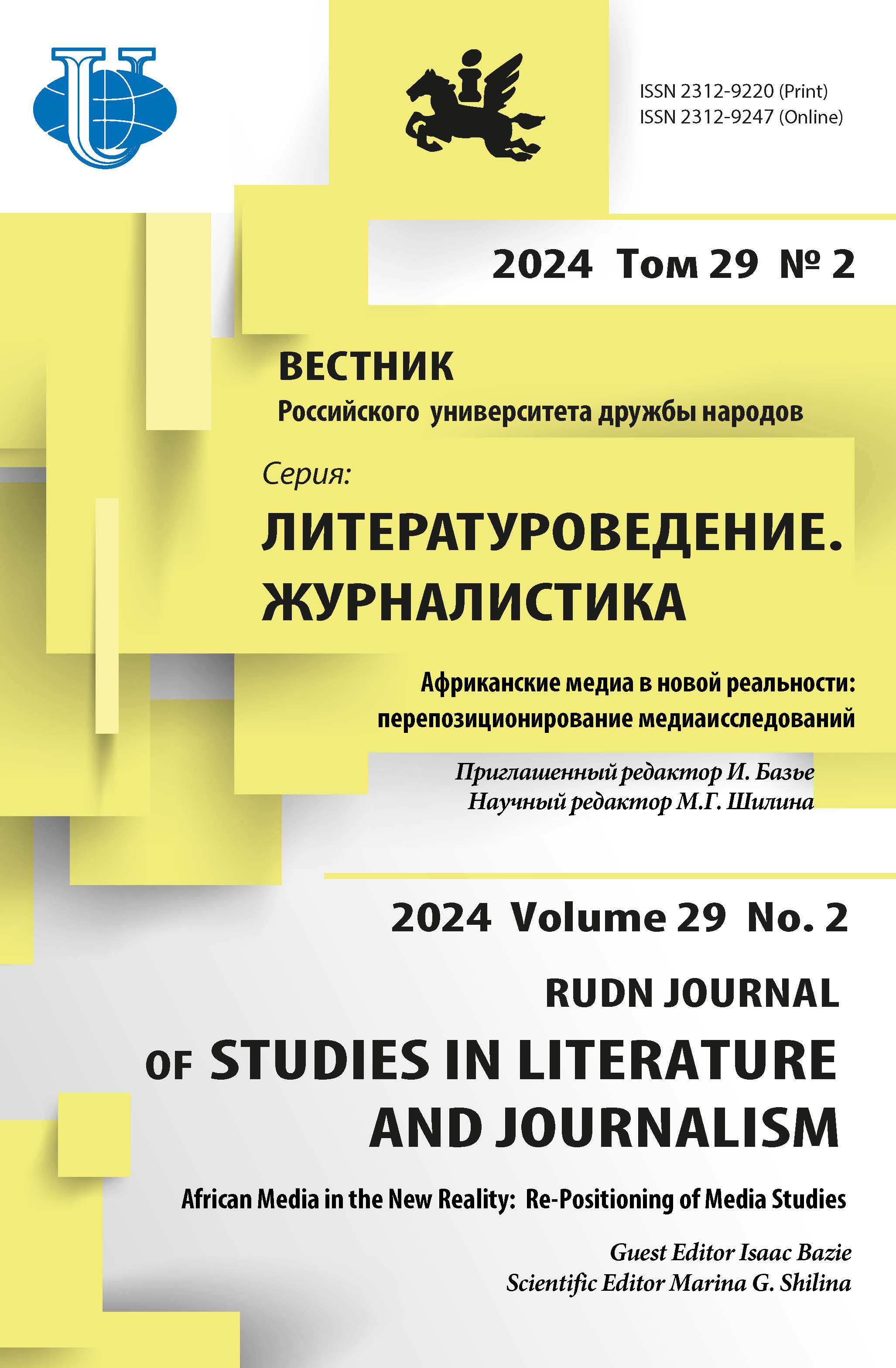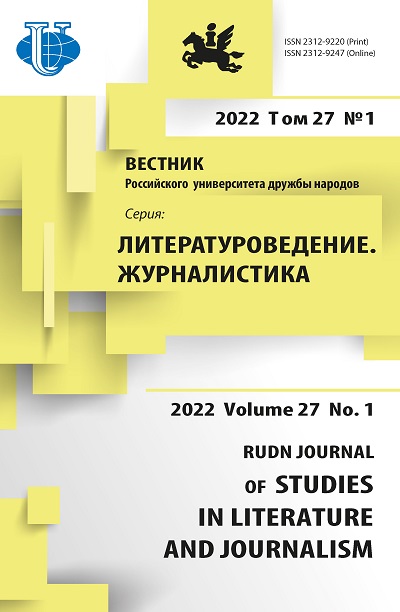Волны развития медиаобразования: синхронический и диахронический аспекты
- Авторы: Пугачев М.А.1
-
Учреждения:
- ГТРК «Оренбург»
- Выпуск: Том 27, № 1 (2022)
- Страницы: 147-157
- Раздел: Журналистика
- URL: https://journals.rudn.ru/literary-criticism/article/view/30729
- DOI: https://doi.org/10.22363/2312-9220-2022-27-1-147-157
Цитировать
Полный текст
Аннотация
В условиях усиления влияния продуктов интернет-пространства (соцмедиа, блогинг) на повседневность медиаобразование получает особую актуальность. Изменяется символический статус аудитории, которая становится не только потребителем, но и производителем медиаконтента. Однако настоящий этап развития медиакоммуникаций можно считать уникальным с некоторой оговоркой. Прежде уже существовала прецедентность, поскольку в обществе периодически наблюдались периоды масштабного всплеска интереса к медиаграмотности как основной категории медиаобразования, зависящие от ряда социокультурных факторов. Подобное усиление носит волнообразный характер. Предметом настоящей статьи являются волны медиаобразования, которые рассматриваются с позиций синхронии и диахронии. Используется комплекс методов: историко-культурный анализ; структурный анализ; контекстуальный анализ; вторичный анализ социологических и статистических данных. По итогам проведенного исследования делаются выводы о том, что современные медиакоммуникационные условия, в которых развиваются новые медиа, схожи с теми, что были при формировании аудитории кинематографа и телевидения.
Ключевые слова
Об авторах
Максим Алексеевич Пугачев
ГТРК «Оренбург»
Автор, ответственный за переписку.
Email: pugachevma@mail.ru
ORCID iD: 0000-0001-6255-7646
шеф-редактор службы информационных и тематических программ ТВ и РВ
Российская Федерация, 460024, Оренбург, пер. Телевизионный, 3Список литературы
- Аммосов Ю. Огюст и Луи Люмьеры: на площадке первого кинофильма // Republic. 2016. URL: https://republic.ru/posts/60379 (дата обращения: 16.06.2021)
- Будовская Ю.В., Волкова И.И. Распространение медиаконтента в социальных медиа и социальных сетях: теория игр против виральности // Вестник Московского государственного университета культуры и искусств. 2012. № 5 (49). С. 69-74
- Вилкова Н.Н. 75 лет электронному телевидению в России и первому отечественному электронному телевизору ТК-1 // Виртуальный компьютерный музей. 2014. URL: https://computer-museum.ru/articles/televidenie-i-radioveshchanie/188 (дата обращения: 12.06.2021)
- Волкова И.И. Трансляция игровых событий как предтеча телевизионного репортажа // Исторические, философские, политические и юридические науки, культурология и искусствоведение. Вопросы теории и практики. 2015. № 6 (56). Ч. I. C. 40-43
- Волкова И.И. Экранные игровые коммуникации как индикатор восприятия медиареальности: статусно-поколенческий аспект // Вестник Московского университета. Серия 10: Журналистика. 2018. № 4. С. 124-138. https://doi.org/10.30547/vestnik.journ. 4.2018.124138
- Еремин А.Л. Ноогенез и теория интеллекта. Краснодар: Советская Кубань, 2005. 356 с
- Ефанов А.А. «Закон о фейковых новостях» с позиций методологической корректности // Информационное общество. 2020. № 1. С. 49-56
- Ефанов А.А. Социальные последствия медиавоздействия: монография. М.: Флинта, 2019. 272 с
- Лазутова Н.М., Волкова И.И. Экранные массмедиа и экология человека: от зачаровывания к присоединению // Вестник Оренбургского государственного университета. 2017. № 12 (212). С. 106-111
- Лебедев Н.А. Очерки истории кино СССР. Немое кино: 1918-1934 годы. М.: Издательство «Искусство», 1965. 583 с
- Федоров А.В. Медиаобразование: история, теория и методика. Ростов-на-Дону: Изд-во ЦВВР, 2001. 708 с
- Федоров А.В., Новикова А.А. Медиаобразование в ведущих странах Запада: монография. Таганрог: Изд-во Кучма, 2005. 270 с
- Шефер Б. Самодельный телевизор. М.: Издательство детской литературы, 1937. 247 с
- Экосистема медиа: цифровые модификации: монография / ред. С.Л. Уразова. Челябинск: ЮУрГУ, 2021. 246 с
- Shmakov P.V. The Development of Television in the USSR // Television Society Journal. 1935. № 2. P. 10-28
















